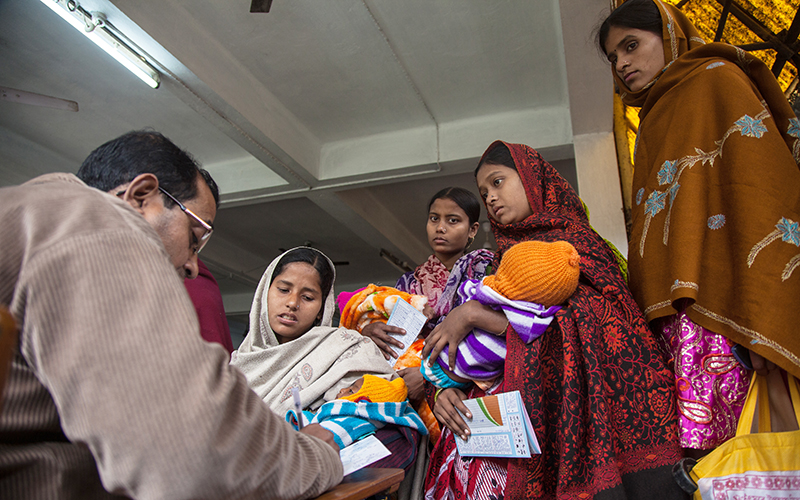
During Women’s Health Week, Burnet is recognising some of the important work our researchers are doing to improve women’s health and ensure women have access to appropriate healthcare.
Women’s Health Week, 4-8 September, aims to increase awareness and education about women’s health issues and to encourage women to speak out and seek care when they need it.
This year’s theme ‘Grow your knowledge’ encourages a broader sharing of information and resources to improve health outcomes for women, girls and gender-diverse people.
Burnet Senior Research Fellow Dr Fiona Bruinsma said Women’s Health Week was an opportunity to highlight the importance of women being able to access basic healthcare.
“There is a lack of data about the care women are receiving, particularly during pregnancy and the postpartum period and in low- and middle-income countries, so I think this year’s theme ‘Grow your knowledge’ is particularly pertinent because without accurate data we cannot provide and improve the care women need,” she said.
“We are doing a lot of work in low- and middle-income countries to help improve the quality of care for women, particularly in relation to childbirth.”
Dr Bruinsma said there needed to be a greater focus on women's health issues.
“If women’s health issues remain invisible it is really difficult to make improvements, so it’s important that we talk about them and bring them out into the open,” she said.
“We want women to have access to information and resources so they can have some control over their health and know when to get help or treatment.
“Particularly in resource-limited settings, it is vital women have access to things like health checks and screening programs so they can experience good health outcomes.”
Burnet Co-Head of Global Adolescent Health Dr Julie Hennegan said women’s health issues affected half of the population, so it was crucial they were given adequate resources, attention and funding.
“We need to make sure we are attending to everybody’s health needs, including those needs that have previously been considered taboo or stigmatised, such as menstruation” she said.
“It is important women know where to go when they have health issues. Women often struggle to find enough information to make informed health choices, which is something we are working to change."
Find out more about Burnet's work in Maternal, Child and Adolescent Health.
